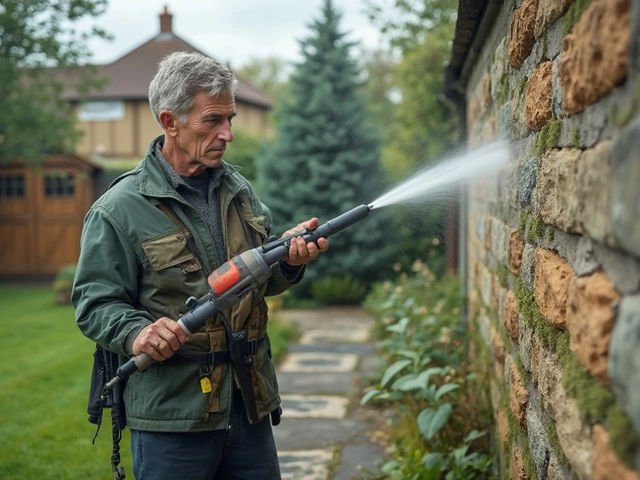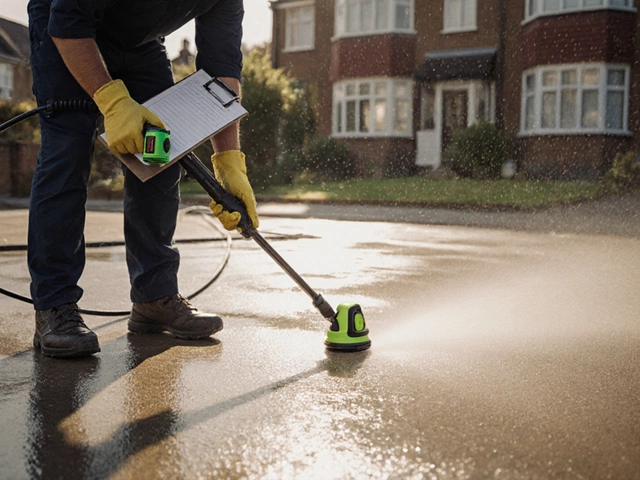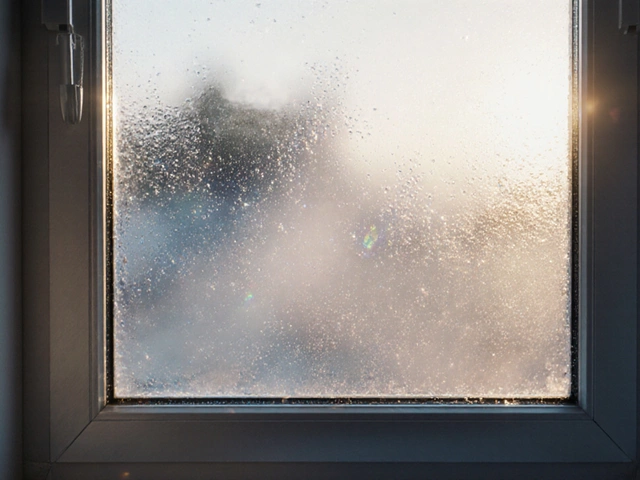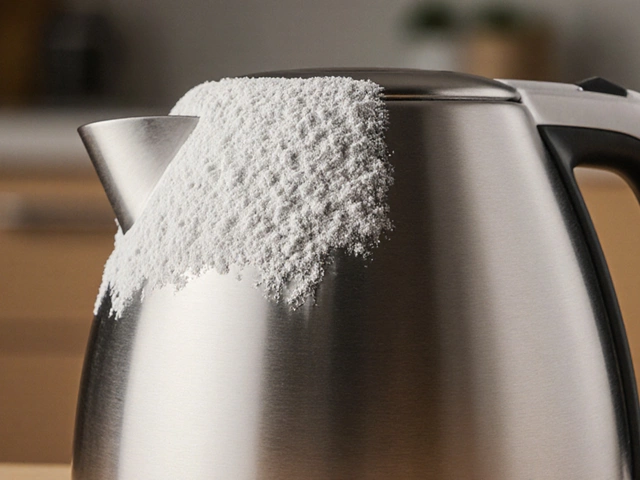Opening your home to a cleaning professional is a leap of trust, one grounded on the anticipation of returning to a spotless, refreshed space. As the end of a tenancy approaches, the stakes rise a notch. Ensuring squeaky clean standards isn't just about cleanliness—it's often tied to rental deposits and references for future landlords.
Yet, how do you address situations when the cleaning falls short? Effective communication can transform potential awkwardness into solutions that shine. It's about more than just pointing out itty-bitty details.
This article offers a roadmap towards dialing up the quality of your cleaning services, not through demands but through dialogue—ensuring that 'clean' meets your standards and expectations effortlessly.
- Understanding the Importance of Communication
- Setting Clear Expectations
- Providing Constructive Feedback
- Building a Respectful Relationship
- Additional Tips for Effective Communication
Understanding the Importance of Communication
When it comes to achieving the perfect clean, especially at the pivotal moment of an end of tenancy cleaning, communication isn't just helpful—it's essential. The dance between what's expected and what's delivered can only be harmonized through clear dialogue. It's crucial to consider that your cleaning lady is not a mind reader; she can't know your specific preferences without being told. Imagine the power of a simple conversation. It sets the stage for understanding, delineates expectations, and opens the pathway to trust. Without it, you risk misunderstandings about what a truly clean home entails. Just as a chef needs to know if a diner has allergies, your cleaner needs to know if there are certain areas that particularly need attention.
An articulate expression of your cleaning priorities aids in avoiding unpleasant surprises later on. Perhaps your main concern isn't the dust on top of tall shelves but the spots on the kitchen counter where the light hits. Or maybe you've invested in a new carpet cleaner and wish it used on the living room floor. Sharing this information paves the way toward a partnership built on mutual satisfaction. It’s important to acknowledge that most cleaning professionals take pride in their work. They find satisfaction not just in a job completed but in a job well done. Accordingly, they often welcome feedback—especially when presented constructively. After all, their reputation depends on leaving clients happy, ready to provide referrals.
"The single biggest problem in communication is the illusion that it has taken place." - George Bernard Shaw
This famous quote by Shaw underscores the pivotal aspect of perception. Just because you've mentioned something once doesn't mean it sticks. Regular, open conversations maintain clarity and avert potential confusion. You also gain insights from the cleaner’s perspective—practical tips to keep up between sessions or advice on tackling persistent grime. Solid communication establishes a two-way street—a space where you both feel heard and valued.
Statistics suggest that miscommunication is a leading cause of service dissatisfaction. According to industry reports, approximately 70% of service complaints could be solved if initial instructions were more precise. That’s staggering data that reinforces why detailing your expectations beforehand results in a better outcome for both parties. Miscommunications can also financially affect the rental market. Landlords cite cleaning discrepancies as one of the top reasons for deposit deductions; hence your home’s cleanliness impacts not just the present but your future housing prospects too. A conversation isn’t just a request—it's an investment.
Setting Clear Expectations
When it comes to ensuring that your cleaning tips are well understood and executed, setting clear expectations is your foundation for success. It's like drawing a map; without it, you're asking someone to navigate through a labyrinth. How do you begin? Start by having a detailed conversation with your cleaning lady right from the start. This discussion isn't just about telling them what you want cleaned, but about expressing how you envision your home post-cleaning, especially during an end of tenancy cleaning. This could mean outlining specific areas that need more attention, such as those often-neglected corners behind appliances or the window sills that collect dust over time.
The art of setting clear expectations lies in your ability to balance details without overwhelming. Make a cleaning checklist; a tangible guide that clearly spells out tasks and their priorities can be incredibly effective. For example, you might prioritize the deep cleaning of carpets, given the need to leave the property meeting specific rental expectations. Use clear, simple language, and avoid technical jargon that might confuse rather than clarify.
Consider aligning your expectations with common industry practices. According to a report by the British Institute of Cleaning Science, systematic cleaning routines often produce the best results in homes. By understanding these universal standards, you can better communicate realistic expectations. Despite the professional nature of cleaning, the interpretations of 'spotless' can vary from person to person; hence, specificity is key.
"It’s about making sure both you and your cleaning professional are on the same page from the start," emphasizes Julia Blanc, an expert in domestic cleaning services. "When there's clarity, disappointments are minimized, and satisfaction is more likely achieved."
Additionally, remember that setting expectations is not a one-time endeavor—it is an ongoing dialogue. Acknowledge the work that meets or exceeds your standards, which in turn cultivates a positive working relationship. Should you require adjustments, prompt timely feedback rather than waiting for issues to escalate. This proactive approach ensures improvements are aligned to expectations swiftly.
It may help to schedule regular brief meetings to discuss any changes in the scope of work. Especially during an end of tenancy cleaning, these discussions can mitigate stress and ensure both you and your cleaner have understood the changes due to contractual requirements. Remember, flexibility is as crucial as clarity when it comes to improve cleaning services effectively.
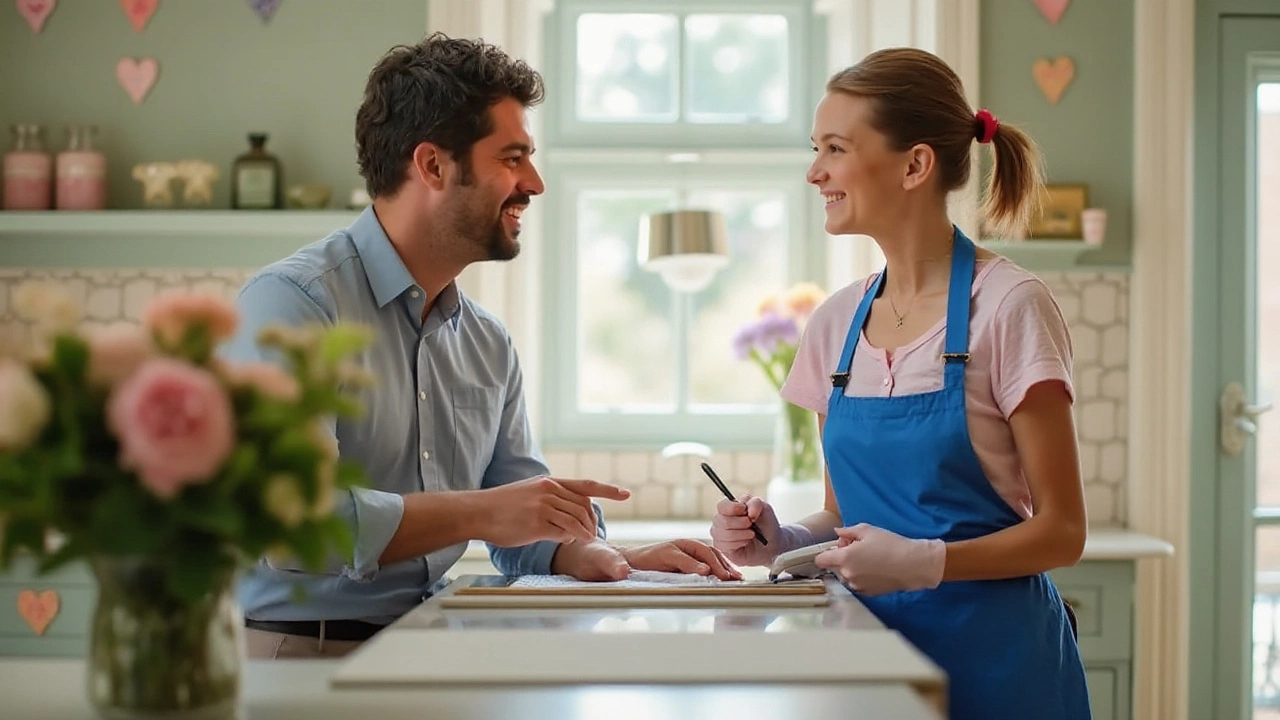
Providing Constructive Feedback
Offering constructive feedback to your cleaning lady is a skill that combines clarity, patience, and empathy. Achieving great results from end of tenancy cleaning requires open lines of communication, and a mutual understanding of your cleaning goals. While it can be tempting to simply point out things that aren't right, remember that feedback thrives on specifics, not just general observations. Start by identifying precise areas where improvements are needed, without making it sound overly critical. State clearly, "I've noticed the corners of the kitchen floor haven't been thoroughly cleaned and accumulate dust," instead of making blanket statements about overall cleanliness.
Constructive feedback is most effective when balanced with positivity. The sandwich approach—where positive feedback frames constructive criticism—can work wonders. Begin by acknowledging what has been done well, segue into areas of improvement, and round it off with another positive note. For instance, you might say, "The way you've handled the living room windows is exceptional—it really lets the light in. I've noticed, though, that the bathroom grout misses some attention. But, your consistency in keeping the bedroom organized is truly appreciated." This structure not only makes the feedback palatable but also shows appreciation for the cleaner's efforts.
In practice, the manner and timing of delivery can profoundly impact how feedback is received. Always aim for a private setting, preferably when both of you are calm and have time to discuss without rush. Avoid moments when the cleaner is packing up or rushing to her next appointment. Feedback isn't just an offload of your thoughts; it is a conversation. Be open to her perspective as well. Perhaps there are constraints or challenges you weren't aware of that impacted her performance.
"Feedback is the breakfast of champions," according to leadership expert Ken Blanchard. Applying this to house cleaning reminds us that improvement stems from a base of awareness and direction. Ensuring communication remains two-way isn't just important—it's essential. The most effective feedback isn't a monologue of instruction but a dialogue of ideas. Invite suggestions and express your willingness to adapt or provide additional resources that might ease her work.
For those who love a bit of quantifiable context, a study conducted by Harvard Business Review found that teams performing better at collaborative problem solving had a positive feedback to negative feedback ratio of roughly 5:1. This underscores the power of blending praise generously with guidance tailored to specific areas of improvement. Actively employing this ratio can transform how feedback impacts your cleaning outcomes, ensuring you maintain not only a cleaner space but also a stronger relationship with your cleaner.
Building a Respectful Relationship
Creating a meaningful bond with your cleaning lady is a process, akin to nurturing any other professional relationship. People often underestimate the value of mutual respect in securing outstanding service. It's not just about transactions or duties; it's about acknowledging each other's roles. Building such a respectful rapport requires open-mindedness and includes recognizing and appreciating the hard work involved in house cleaning. By taking the time to understand your cleaning lady's approach, you lay the groundwork for a mutually beneficial partnership.
Begin by setting a positive tone from the very first interaction. Like any working relationship, first impressions matter. Greet her warmly and introduce yourself in a friendly manner. People cherish being treated with dignity, no matter the nature of their work. Sharing a brief conversation about interests, family, or even the weather can create a welcoming environment. It allows the proverbial ice to break and lays the foundation for continuous communication. Perhaps invite feedback on the cleaning supplies she prefers—it's a small gesture that shows consideration for her experience and effectiveness in end of tenancy cleaning.
Feedback, of course, works both ways. Your cleaning lady can provide insights into ensuring that your living space remains impeccable. Encouraging her to share her thoughts not only builds rapport but also empowers her to do her best work. The phrase, "What are some ways we could improve the cleaning process?" could open up significant avenues of dialogue. Sometimes, just like any other professional, she might have techniques up her sleeve that she's honed over years of experience. Such exchange of knowledge benefits both parties, aligning the cleaning expectations with what can feasibly be achieved.
Regular appreciation after a job well done is crucial and cannot be stressed enough. Everyone likes to know when their contributions are valued, and genuine thanks go a long way in maintaining morale. On occasion, offering more tangible expressions of gratitude, like a bonus for consistent work or the holiday season, could fortify this relationship. "Appreciation can make a day, even change a life. Your willingness to put it into words is all that is necessary," wrote Margaret Cousins. Such appreciation doesn't only enhance the working environment, it ensures loyalty and a shared commitment to excellence.
Lastly, it’s essential to remember that trust is the foundation of any lasting relationship. Entrusting someone with your home requires confidence in their integrity and abilities. Respecting your cleaning lady's autonomy and time reflects your belief in her professional judgment. A study from Stanford University concluded that employers who foster a high degree of trust with their service providers achieve better performance outcomes. Sometimes, allowing her to make certain decisions related to her tasks can foster accountability and result in superior outcomes for your home's hygiene.
By fostering an environment of respect, appreciating the hard work, and supporting autonomy, you create a symbiotic relationship where both your home and your cleaning lady's job satisfaction can thrive. Morale and result-based benefits are common when empathy and respect are part of the workspace, especially in house cleaning. This leads not only to superior end of tenancy cleaning but also to an ongoing relationship that prospers well beyond one single task.

Additional Tips for Effective Communication
Effective communication is the cornerstone of any successful relationship, particularly when it's transactional, such as with your cleaning service. Conceiving a strategy that involves both empathy and assertiveness is vital. First off, consider setting up a regular schedule for feedback. This can turn what might initially seem like a critique into a constructive dialogue. Regular check-ins create a routine that allows both parties to express opinions before small issues become larger grievances. Scheduled discussions prevent misunderstandings and ensure that everyone is on the same page regarding expectations. Emotional intelligence plays a significant role here. If the cleaning does not meet expectations, approach the topic with a calm demeanor. In conversations, a simple "I notice" statement, like "I noticed the windows weren't as clean this time," takes the sting out of critique while clearly identifying the issue.
Another effective communication tool involves visual aids. These can prove invaluable, especially if language barriers exist. Use photographs to illustrate points about specific areas of concern in the home. A visual comparison before and after cleaning can highlight expectations without relying solely on potentially misunderstood verbal instructions. These visual prompts can break down any communication barriers and serve as a simple way to convey the specific cleaning tips you want addressed.
Moreover, tailor your feedback to highlight the positives as well as the negatives. No one wants to hear only about the areas needing improvement, so make an effort to acknowledge what is being done well. Praises provide encouragement and foster a positive working relationship. A structured compliment followed by a request can soften the delivery of any critique, such as, "You’ve been doing an excellent job with the kitchen; could we focus a bit more on the end of tenancy cleaning for window sills next time?" This balances positivity and necessary criticism, making it easier for the cleaning professional to accept suggestions.
Setting the expectations in writing can also be an effective method. Draft a simple checklist that lays out what needs prioritizing during end of tenancy cleanings. Discuss this in person so both parties understand what’s required. A tangible, written checklist can alleviate misunderstandings, giving the cleaning professional a precise list to work from. This notion of clear expectations makes it easier for both parties to adhere to the agreed terms.
Additionally, don’t underestimate the power of a thank you. Showing appreciation for your cleaning lady's efforts can foster a more productive relationship. A small token of gratitude can sometimes communicate more than words in solidifying a working bond built on mutual respect and appreciation. This can establish goodwill and make discussions about potential improvements more palatable.
Finally, it's helpful to consult references like Home Cleaning Experts for seasoned insights. As Jane Doe, a notable author in cleaning consultancy, once put it,
"Ending your lease with a spotless reputation attached to impeccable cleaning is a testament to effective teamwork between you and your cleaning service. Cultivating this bond through open communication only enhances the quality of work and satisfaction for both parties."Her words underline the importance of good rapport and effective feedback. Implementing these strategies adds layers to discussions, enhancing clarity and cordiality in seeking improvements.

